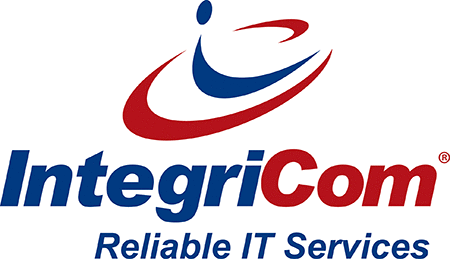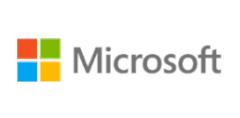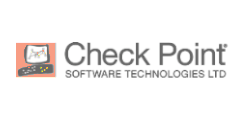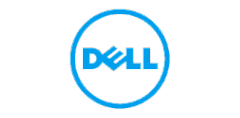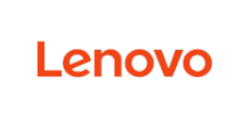HIPAA Compliance Consulting Services in Atlanta, GA
HIPAA Compliance Consulting services provide organizations with expert guidance and support in adhering to the Health Insurance Portability and Accountability Act (HIPAA). These services offer comprehensive assessments, training, and implementation strategies to ensure that healthcare providers, health plans, and business associates meet the stringent privacy and security requirements mandated by HIPAA. IntegriCom can help you proactively address potential risks, safeguard sensitive patient information, and mitigate legal and financial liabilities.

HIPAA Consulting Services In Atlanta Metro
Protecting sensitive patient information is of immense importance for healthcare organizations. HIPAA Compliance Consulting services offer comprehensive solutions to ensure adherence to HIPAA, a crucial regulatory framework that safeguards patient privacy and data security. With the expertise of HIPAA Compliance Consultants, healthcare providers, health plans, and business associates can navigate the complex landscape of HIPAA regulations with confidence. These services encompass a wide range of offerings, including thorough assessments, tailored training programs, robust policy and procedure development, and strategic implementation strategies. With a focus on proactive compliance, these services empower healthcare entities to prioritize data privacy, protect confidential information, and ensure the seamless flow of secure and confidential healthcare operations.


What Is HIPAA Compliance?
HIPAA compliance refers to adherence to the Health Insurance Portability and Accountability Act, a federal law enacted in 1996 in the United States. HIPAA sets forth comprehensive regulations designed to protect the privacy and security of individuals’ protected health information (PHI) held by covered entities such as healthcare providers, health plans, and healthcare clearinghouses. It also includes provisions to ensure the confidentiality and integrity of electronic protected health information (ePHI) that is transmitted or stored electronically. HIPAA compliance involves implementing administrative, physical, and technical safeguards to safeguard PHI and ePHI, conducting risk assessments, developing HIPAA policies and procedures, training employees, and establishing protocols for breach notification and incident response.

IntegriCom HIPPA Risk Analysis & Assessment
A HIPAA risk assessment is used to determine key risk factors–or gaps–that need remediation within your healthcare business or organization. You want to audit your organization’s Administrative, Physical, and Technical Safeguards. Once you’ve conducted your HIPAA risk assessment, we’ll be able to identify any gaps in your HIPAA compliance and create the robust remediation plans required by federal regulation. Call us today to learn more about our HIPPA risk analysis solutions. Our HIPAA risk assessment experts will guide you through the entire process, ensuring a thorough evaluation and clear understanding of your organization’s security posture.
HIPAA Training for Your Entire Staff
One of the most important HIPAA requirements is annual employee HIPAA training. This training should include instruction on HIPAA basics, a breakdown of your organization’s policies and procedures, cybersecurity information, and the proper use of social media. Failure to properly train your staff can result in legal and financial risk for your organization. Our solution includes complete digital training for your entire staff. In addition to the video training modules, you’ll now be able to send automated annual reminders to employees, track who has completed the requirements, and store their attestations. Spend less time on HIPAA!
Implement Effective Policies & Procedures
Creating and implementing effective HIPAA policies and procedures can be tedious work. They need to be drafted to apply to an organization’s specific business operations, and your policies and procedures need to ensure that all HIPAA rule standards are met. Compliance software makes implementing policies and procedures a breeze. Get tailor-made policies and procedures that adhere to HIPAA standards, stored on one digital platform. Our software contains everything you need to become fully HIPAA compliant. Get more than just complete policies and procedures – get HIPAA compliant quickly and effectively, all in one place.

Business Phone Systems
Enhance your business communication with reliable phone systems. Integricom offers customized solutions for businesses of all sizes.

Cloud Services
IntegriCom helps businesses navigate cloud solutions, from choosing the best solutions to deploying them securely. This includes cloud-hosted servers, virtual desktops, software licensing, & robust internet security.

Network / Computer

Virtual CIO


How Does HIPAA Relate To Cybersecurity?
HIPAA and cybersecurity are closely intertwined as HIPAA includes specific provisions and requirements related to the security and protection of ePHI. HIPAA’s Security Rule sets forth standards for ensuring the confidentiality, integrity, and availability of ePHI. It mandates that covered entities and business associates implement administrative, physical, and technical safeguards to protect against unauthorized access, use, and disclosure of ePHI. This includes measures such as access controls, encryption, audit logs, regular risk assessments, and employee training.
Given the increasing prevalence of cyber threats in the healthcare industry, cybersecurity has become a critical component of HIPAA compliance. Organizations must stay vigilant, regularly assess their security posture, and implement appropriate safeguards to protect ePHI from evolving cybersecurity risks.

HIPAA / HITECH Cybersecurity Requirements
In terms of services, cybersecurity offerings related to HIPAA/HITECH compliance may include conducting risk assessments, developing and implementing security policies and procedures, providing security awareness training, performing vulnerability assessments and penetration testing, establishing incident response plans, and offering ongoing security monitoring and management to ensure compliance with the regulations and protect against cyber threats.
The Key HIPAA/HITECH Requirements Related To Cybersecurity Include:
- Risk Assessment: Conducting regular risk assessments to identify and assess potential vulnerabilities and risks to the confidentiality, integrity, and availability of electronic protected health information (ePHI).
- Security Management: Implementing security measures to protect ePHI, including access controls, encryption, and audit controls. This involves establishing policies and procedures to manage security incidents, conducting regular evaluations, and maintaining an overall security management process.
- Security Awareness and Training: Providing workforce training on security awareness and best practices to ensure that employees understand their role in protecting ePHI and are aware of potential security threats.
- Incident Response: Developing and implementing an incident response plan to promptly respond to and mitigate security incidents. This includes processes for reporting, assessing, and managing security breaches or unauthorized access to ePHI.
- Business Associate Agreements (BAA): Establishing agreements with business associates who handle ePHI on behalf of covered entities. BAAs outline the responsibilities of business associates to protect the confidentiality and security of ePHI.
- Physical Safeguards: Implementing physical security measures, such as access controls, to protect the physical infrastructure where ePHI is stored or accessed.
- Contingency Planning: Creating and implementing plans for data backup, disaster recovery, and emergency mode operations to ensure the availability and integrity of ePHI in the event of a data breach or system failure.

The IntegriCom HIPAA / HITECH Compliance Process
IntegriCom has worked in the healthcare industry for many years, and we understand it well. We help you understand the complexities of HIPAA and keep you on track with compliance requirements. We know where and when to bring in partners and experts in specific areas you may need.
Contact us for a free security audit and analysis to see where you are now and where you need to be for HIPAA compliance. Let us guide you in the process.
First, we meet with you to learn your business and determine how and where HIPAA comes into play for you. You, or someone on your team who is established as being responsible for HIPAA, is assigned a HIPAA coach to work with. We also provide you with access to Compliancy Group’s all-in-one compliance software.
Then, over the next weeks or months, you work through the process with the HIPAA coach to get your entire team trained, and we get all policies and processes in place. All information is tracked and maintained in the cloud software platform, is easily accessible at any time, and provides notifications and reminders when items are due for updating or adjusting.
IntegriCom further provides technology support along the way, making sure all questions are answered in the initial or annual assessment and we help keep you on track in your compliance journey.


Our Process Is Proven By Decades Of Client Success
IntegriCom makes the investment in high-end technology that many smaller managed IT services firms choose not to make. This technology provides a dependable framework within which we operate—a structure that ensures our efforts for you are always reliable. Done right, in less time.
We have also invested in developing strong managers and experienced technicians with more certifications and skills than you will ever find in one person or a small, internal IT department. Our people know how to drive our process in order to add value to your technology, and thus to your business.
As illustrated by our Process Lock, we listen to you, analyze your needs, deploy solutions, and resolve all issues. Then we continuously repeat that process as we manage your IT. You have our ongoing support as we monitor and secure your systems, and as we meet with you to review and plan for the future.
Lock in your own peace of mind. Give us a call to see how we can meet your needs.


HIPPA Compliance FAQS
Frequently asked questions about HIPPA compliance for your business
Why Is HIPAA Compliance Important?
HIPAA security compliance is important for the following reasons:
- Protecting Patient Privacy: Compliance with HIPAA security regulations ensures that patient information, including protected health information (PHI), is safeguarded and accessed only by authorized individuals.
- Preventing Data Breaches: HIPAA security requirements help organizations implement measures to protect against data breaches, unauthorized access, and potential misuse or theft of sensitive health information.
- Mitigating Legal and Financial Risks: Non-compliance with HIPAA security regulations can result in significant penalties and legal liabilities. By adhering to these requirements, organizations reduce the risk of costly penalties and potential legal consequences.
- Building Trust with Patients: Demonstrating HIPAA security compliance fosters trust between healthcare organizations and patients. Patients feel more confident in sharing their personal health information when they know it is being protected with appropriate security measures.
- Enhancing Data Security Practices: HIPAA security compliance drives organizations to establish robust data security practices, such as risk assessments, access controls, encryption, and incident response plans. This leads to a more secure and resilient healthcare environment.
- Supporting Interoperability: By implementing HIPAA security standards, healthcare organizations can securely exchange health information and collaborate with other entities, improving coordination of care and patient outcomes.
- Promoting Ethical and Professional Standards: HIPAA security compliance aligns healthcare organizations with ethical and professional standards in handling and protecting sensitive patient information, maintaining the integrity of the healthcare industry as a whole.
Who Certifies HIPAA Compliance?
HIPAA compliance is primarily self-regulated, meaning that organizations are responsible for assessing their own compliance and implementing the necessary safeguards. There is no official governmental agency or specific entity that provides a formal certification of HIPAA compliance. However, the Department of Health and Human Services (HHS) Office for Civil Rights (OCR) is the primary enforcer of HIPAA regulations and has the authority to investigate complaints and conduct compliance audits. External auditors or consultants may also be engaged by organizations to conduct independent assessments or audits to evaluate their HIPAA compliance. Ultimately, organizations themselves are responsible for ensuring and maintaining HIPAA compliance.
Who Is Required To Follow HIPAA?
HIPAA applies to various entities involved in handling PHI. The following entities are generally required to comply with HIPAA:
- Covered Entities: These include healthcare providers (such as doctors, hospitals, clinics), health plans (such as insurance companies, HMOs), and healthcare clearinghouses (entities that process healthcare transactions). Covered entities are directly responsible for complying with HIPAA regulations.
- Business Associates: Business associates are individuals or organizations that perform services involving PHI on behalf of covered entities. Examples include medical billing companies, IT service providers, third-party administrators, and healthcare consultants. Business associates must also comply with HIPAA, as mandated by the HITECH (Health Information Technology for Economic and Clinical Health) Act.
Various customer types need to be concerned about HIPAA/HITECH compliance, including:
- Healthcare Organizations: Hospitals, clinics, nursing homes, pharmacies, and other healthcare providers that handle PHI are directly impacted by HIPAA. They must ensure compliance to protect patient privacy and secure electronic health information.
- Health Plans: Health insurance companies, HMOs, and other organizations that provide or administer health insurance are subject to HIPAA regulations. They need to safeguard PHI related to their members and policyholders.
- Business Associates: Third-party vendors and service providers that handle PHI on behalf of covered entities fall under HIPAA’s purview. They must ensure compliance to maintain the trust and contractual obligations with their covered entity clients.
- Employers: Employers that provide self-funded health plans and have access to employee health information should be mindful of HIPAA compliance, particularly in relation to the privacy and security of employee health data.
Compliance with HIPAA/HITECH regulations is crucial for these entities to protect patient privacy, ensure data security, and mitigate legal and financial risks associated with non-compliance.
Who Is Not Required To Be HIPAA Compliant?
While HIPAA mandates compliance for various entities, it does not impose compliance obligations on individuals as patients or consumers. Individuals, such as patients and employees, do not have direct HIPAA compliance responsibilities.
In general, employers that do not provide self-funded health plans and do not have access to their employees’ protected health information (PHI) as part of their business operations are not required to be HIPAA compliant. However, it’s important to note that employers may still need to comply with other privacy and security laws and regulations applicable to employee information, such as state-specific laws.
Organizations that do not handle PHI on behalf of covered entities or business associates, and are not involved in the healthcare industry, are generally not subject to HIPAA compliance requirements. For example, companies in non-healthcare sectors, such as manufacturing or retail, are not required to be HIPAA compliant unless they have a specific contractual relationship with a covered entity that necessitates compliance.
While these entities may not have a direct obligation to comply with HIPAA, they still need to ensure that they handle any personal information in accordance with relevant privacy and security laws and regulations applicable to their respective industries or jurisdictions.
What Is HITECH In Healthcare?
The HITECH (Health Information Technology for Economic and Clinical Health) Act, enacted in 2009, introduced several additional requirements and provisions to reinforce and expand the privacy and security regulations established by HIPAA. It focuses on strengthening the privacy and security of electronic health records (EHRs) and promoting the adoption and meaningful use of health information technology. It extends HIPAA’s requirements to business associates, entities that handle PHI on behalf of covered entities. HITECH also enhances enforcement capabilities and increases penalties for non-compliance with HIPAA regulations.
Under HITECH, organizations must implement various measures, such as conducting regular risk assessments, implementing security measures to protect electronic health information, ensuring proper breach notification procedures, and providing individuals with greater access to their health records.
Overall, HITECH compliance aims to enhance the privacy and security of electronic health information, encourage the use of technology in healthcare, and strengthen enforcement actions for non-compliance with HIPAA regulations. It aligns with the broader objective of safeguarding patient information and promoting a secure and efficient healthcare ecosystem.
How Does HIPAA Compliance Compare To PCI Compliance?
In parallel, PCI (Payment Card Industry) compliance ensures the protection of sensitive cardholder data for organizations that handle credit card transactions. While HIPAA focuses on health information, PCI compliance focuses on financial data security. The PCI Data Security Standard (PCI DSS) provides guidelines and security requirements to protect cardholder data and maintain a secure payment environment. Both HIPAA and PCI compliance emphasize the importance of safeguarding sensitive information and maintaining data security. However, their specific requirements and focus areas differ.
How Often Should You Do A HIPAA Compliance Audit? Or…Does HIPAA Require Annual Audits?
HIPAA does not explicitly require organizations to conduct annual audits. However, it does require covered entities and business associates to regularly review and assess their compliance with HIPAA regulations. The frequency of these audits or reviews may vary depending on factors such as the organization’s size, complexity, resources, and changes in the regulatory environment.
While the HIPAA regulations do not specify a specific timeline for audits, it is generally recommended to conduct regular audits to ensure ongoing compliance and identify any gaps or areas for improvement. Many organizations choose to conduct internal audits annually or on a periodic basis to assess their adherence to HIPAA requirements and make any necessary adjustments to their policies, procedures, and security controls.
Additionally, organizations may also undergo external audits or assessments conducted by third-party entities to validate their compliance with HIPAA regulations. These external audits may be conducted less frequently, typically every few years, depending on the organization’s specific circumstances and industry standards.
Ultimately, the frequency of HIPAA compliance audits should be determined based on a comprehensive assessment of the organization’s risk profile, resources, and the need to stay current with evolving regulatory requirements and best practices in safeguarding protected health information (PHI).
What Is The Difference Between HIPAA Verified & HIPAA Compliant?
There is an important distinction between being “HIPAA certified” and “HIPAA compliant”:
- HIPAA Compliant: Being HIPAA compliant means that an organization has implemented the necessary policies, procedures, and security measures to meet the requirements outlined in the HIPAA regulations. Compliance involves adhering to the Privacy Rule, Security Rule, and Breach Notification Rule, as applicable to the organization’s role as a covered entity or business associate. HIPAA compliance is a self-declared statement by the organization, indicating that they have implemented the necessary safeguards to protect protected health information (PHI).
- HIPAA Verified: On the other hand, HIPAA verification refers to a formal verification process conducted by an external organization or a qualified third-party auditor. This verification validates that an organization has undergone a comprehensive assessment or audit of its policies, procedures, and security controls and has been found to be in compliance with HIPAA regulations. However, it’s important to note that there is no official HIPAA certification program endorsed or provided by the U.S. Department of Health and Human Services (HHS), which administers HIPAA.

Our HIPPA Compliance Experts Are Here To Answer Your Questions
Partner with IntegriCom, a trusted local IT support company for accountants, banks, and financial services companies with the experience and expertise to advise you on your day-to-day technology challenges.
